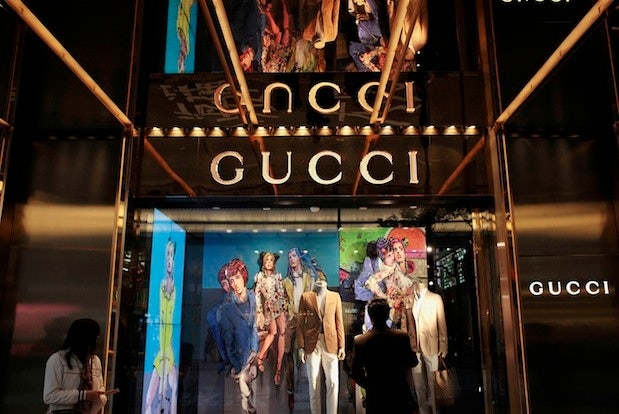Certain Items May Be Reclassified As "Daily Necessities": Wording Remains Vague#

A Gucci storefront in China. Most luxury purchases by mainlanders are made in Hong Kong or overseas thanks to high duties. (Reuters)
While duties on imported luxury goods continue to send mainlanders overseas to make purchases, People's Daily reports that a Chinese official has made another public statement calling for new taxes on luxury as part of ongoing economic reform plans. However, hidden in his ambiguous language on what might actually be implemented was the revelation that some goods now considered luxury may actually be reclassified as "daily necessities" and see their taxes lowered.
The statement was made by Kong Jingyuan, director-general of the department of comprehensive reform of the economic system at the National Development and Reform Commission, when discussing the State Council's new policy document that was released on Friday outlining economic system reforms for 2013.
Without going into detail, Kong stated that China's new tax reform plan will aim to "properly modify the rate and scope of consumption taxes." His announcement's lack of tangible examples reflects similar statements in the past that have not led to new policies. Notably, he also hinted that taxes for some goods may actually lower, stating that certain products previously regarded as luxury goods may now be considered daily necessities. The only taxable items named were luxury cars and yachts, but Kong declined to say which models would be affected or how high the rates would be.
Additional luxury taxes have been discussed for years, but as Jing Daily has previously discussed, little has been done to implement reforms. In addition to Kong's vague statement, the article cites only an unnamed source from a previous China National Radio report discussing a possible vehicle tax, stating,
An earlier report by China National Radio said that a 20 percent extra tax will be levied on cars priced at more than 1.7 million yuan ($277,440). The report cited an unnamed source with the China Association of Automobile Manufacturers.
If implemented, an additional luxury tax would be a far more concrete example of the government's luxury crackdown than its ban on luxury advertising, which many say does not impact high-end brands that are not reliant on mass-market advertising locations such as billboards.